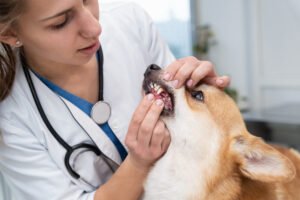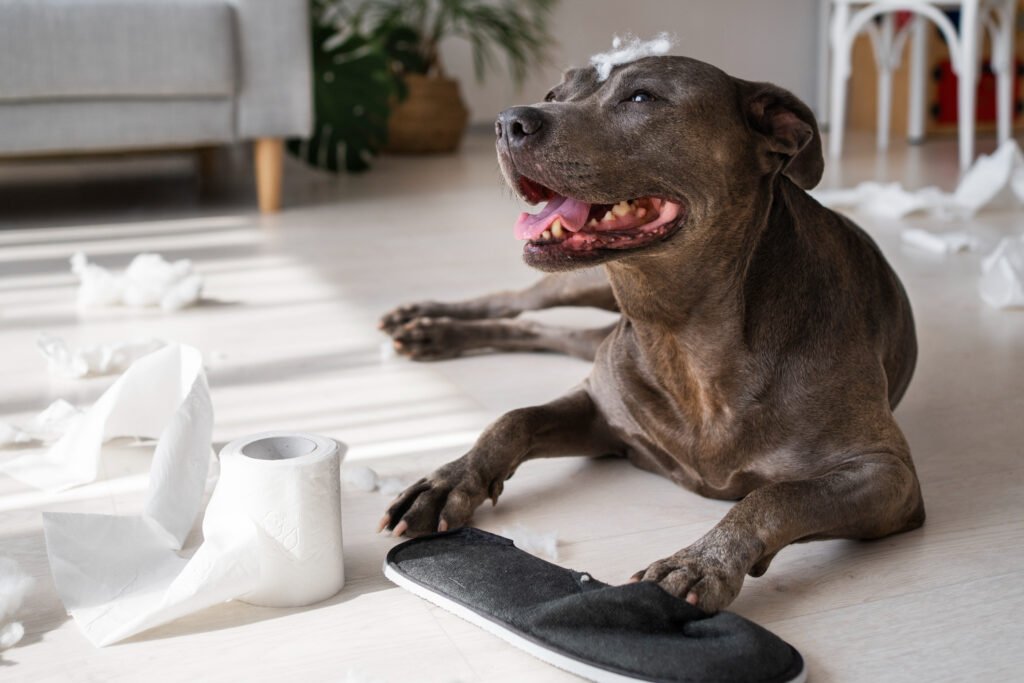Dogs are our loyal companions, always ready to greet us with wagging tails and endless affection. As pet parents, it’s our responsibility to ensure their well-being by understanding the common health problems they might face and how to address them. Here’s an informative guide to some prevalent dog health issues and practical solutions to keep your furry friend happy and healthy.
Dogs are more than pets—they’re family. As a responsible pet parent, understanding the common health problems your furry friend may face is crucial to ensuring their well-being. Early detection and appropriate care can help your dog live a long and healthy life. Below, we delve deeper into the most common health issues in dogs, along with actionable solutions to keep your four-legged companion thriving.

1. Arthritis
Problem:
output:
output:
Arthritis is one of the most common health issues in older dogs, characterised by joint inflammation. While it’s often associated with ageing, younger dogs can also develop arthritis due to injuries, obesity, or genetic predispositions. Breeds like German Shepherds, Labradors, and Golden Retrievers are particularly prone to this condition.
Symptoms:
- Difficulty standing up or lying down.
- Stiffness, especially after exercise or in the mornings.
- Reluctance to climb stairs, jump, or play.
- Swelling or tenderness around joints.
Solution:
- Medications: Non-steroidal anti-inflammatory drugs (NSAIDs) prescribed by a vet can reduce pain and inflammation.
- Supplements: Products containing glucosamine, chondroitin, and omega-3 fatty acids support joint health.
- Exercise: Low-impact activities like swimming or short walks help maintain mobility without straining joints.
- Lifestyle Adjustments: Orthopaedic dog beds, ramps for climbing, and maintaining a healthy weight can reduce joint stress.
Regular veterinary checkups are essential to monitor the progression of arthritis and adjust treatment plans.

2. Obesity
Problem
Obesity is a growing concern among pet owners. Dogs that are overweight are at an increased risk for chronic conditions such as diabetes, heart disease, arthritis, and even cancer. Toy breeds and indoor dogs with limited physical activity are particularly susceptible.
Symptoms:
- Weight gain and difficulty feeling ribs.
- Decreased stamina or reluctance to exercise.
- Panting even after mild activity.
Solution
- Dietary Changes: Switch to portion-controlled meals with low-calorie, high-protein dog food. Avoid high-fat treats and table scraps.
- Exercise Routine: Engage your dog in daily physical activity. For small breeds, indoor games like fetch or puzzle toys can be effective, while larger breeds benefit from longer walks or outdoor play.
- Veterinary Support: Work with a vet to create a weight management plan tailored to your dog’s needs, including regular weigh-ins.
Obesity is preventable and treatable with the right combination of diet, exercise, and veterinary guidance.
3. Dental Diseases
Problem
Dental problems are common but often overlooked. Plaque and tartar buildup can lead to gum disease (periodontal disease), tooth decay, and even infections that affect vital organs. Small breeds, like Chihuahuas and Dachshunds, are especially prone to dental issues due to their smaller mouths.
Symptoms:
- Persistent bad breath.
- Discoloured teeth or visible tartar buildup.
- Swollen, bleeding gums.
- Difficulty eating or chewing.
Solution:
- Regular Brushing: Use pet-safe toothpaste and brushes to clean your dog’s teeth several times a week.
- Dental Chews: Provide dental treats and toys that reduce plaque and tartar.
- Professional Cleanings: Schedule annual dental cleanings with your vet to prevent advanced dental disease.
Dental health is vital for your dog’s overall well-being, so don’t neglect their oral hygiene.

4. Skin Allergies and Infections
Problem
Skin conditions are among the most common health complaints in dogs. These can be triggered by environmental allergens (like pollen or dust mites), food sensitivities, or parasites such as fleas and ticks. Dogs with compromised skin barriers or genetic predispositions (e.g., Bulldogs, Shar-Peis) are at higher risk.
Symptoms
- Persistent scratching, licking, or biting at skin.
- Redness, inflammation, or scaly patches.
- Hair loss or bald spots.
Solution
- Parasite Control: Use vet-approved flea and tick preventatives year-round.
- Dietary Management: Transition to hypoallergenic diets if food allergies are suspected.
- Topical Treatments: Use medicated shampoos or creams to soothe itchy, inflamed skin.
- Allergy Medications: Antihistamines, steroids, or immunotherapy may be recommended by your vet.
Addressing the root cause of the allergy is critical to preventing chronic discomfort and recurring infections.

5. Ear Infections
Problem
Dogs with floppy ears, such as Basset Hounds and Cocker Spaniels, are more prone to ear infections due to poor air circulation in the ear canal. Moisture, wax buildup, and allergies further exacerbate the issue.
Symptoms:
- Head shaking or tilting.
- Scratching at the ears.
- Redness, swelling, or foul odour.
Solution
- Cleaning Routine: Use a vet-recommended ear cleaner to remove wax and debris regularly.
- Treatment for Infection: A vet may prescribe antibiotic or antifungal ear drops to treat active infections.
- Dry Ears After Baths: Ensure ears are thoroughly dried after swimming or bathing to prevent moisture buildup.
Early intervention can prevent complications such as hearing loss or chronic infections.

6. Urinary Tract Infections (UTIs)
Problem
UTIs are common in dogs, especially in females and older dogs. If left untreated, they can lead to more severe issues like kidney infections or bladder stones.
Symptoms:
- Increased frequency of urination.
- Straining or signs of pain while urinating.
- Blood or unusual discharge in urine.
Solution
- Hydration: Ensure your dog always has access to clean water.
- Timely Vet Visits: A veterinarian will conduct urine tests and prescribe antibiotics if needed.
- Prevention: Regular bathroom breaks can help prevent infections caused by bladder irritation.
UTIs are treatable, but prompt action is necessary to avoid complications.
7. Benign Tumours
Problem
Lumps or growths on a dog’s body can be benign or malignant. While benign tumours like lipomas (fatty lumps) are usually harmless, they can sometimes grow large enough to cause discomfort.
Symptoms:
- New lumps or bumps under the skin.
- Changes in the size or shape of an existing lump.
Solution:
- Regular Checks: Perform routine examinations of your dog’s skin.
- Biopsy: Consult a vet to determine the nature of the lump.
- Surgical Removal: If the tumour causes discomfort, removal may be recommended.

Conclusion
Being a responsible dog owner means staying informed about potential health issues and recognising the early signs of illness. By understanding common health problems such as obesity, arthritis, dental diseases, and allergies, you can take proactive steps to ensure your dog’s well-being. Regular veterinary checkups, a balanced diet, proper grooming, and an active lifestyle are key to preventing many issues. Remember, early detection and timely treatment are crucial for maintaining your furry friend’s quality of life. With love, care, and vigilance, you can help your dog live a happy, healthy, and fulfilling life by your side.






